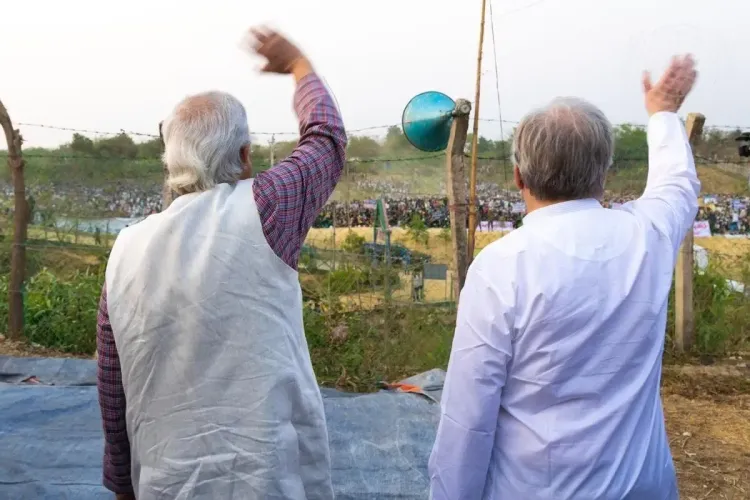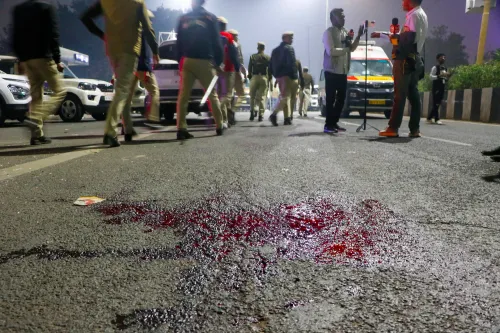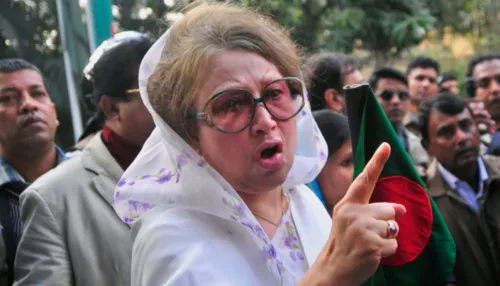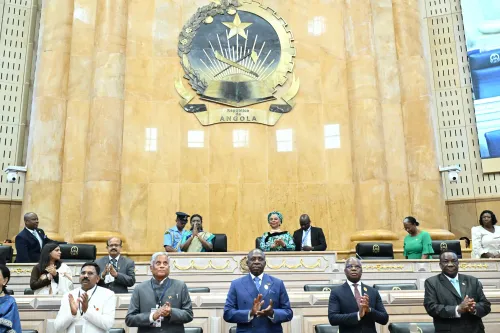Guterres Stresses Need for Dialogue with Arakan Army to Ensure Rohingya Rights

Synopsis
Key Takeaways
- Engagement with ARSA is vital for Rohingya rights.
- ARSA's past actions include a massacre of Hindus in 2017.
- Over 1 million Rohingya refugees are in Bangladesh.
- Guterres commended Bangladesh for its humanitarian efforts.
- International community support is essential for a lasting solution.
United Nations, March 16 (NationPress) Secretary-General Antonio Guterres emphasized that it is crucial to engage with the Arakan Rohingya Salvation Army (ARSA) to ensure the full respect of Rohingya rights while working towards a resolution of the refugee crisis.
"The Arakan army is an entity with which, I believe, a necessary dialogue must take place,” he expressed during a joint news conference with Bangladesh's interim leader Muhammad Yunus in Dhaka on Saturday.
ARSA was responsible for a massacre of Hindus in Rakhine State, Myanmar, in August 2017, along with other abductions, as documented by Amnesty International.
“We recognize that historically, the relationship between the Rakhine and Rohingya communities has been complex, thus it is essential to engage the Arakan army for the full respect of Rohingya rights in Rakhine,” Guterres noted according to the UN transcript of the media encounter.
ARSA is led by Ataullah Abu Ammar Jununi, an ethnic Rohingya born in Pakistan.
Amnesty International has recorded the massacre of approximately 100 Hindus by ARSA at Ah Nauk Kha Maung Seik in Rakhine State in August 2017.
The organization reported additional killings of Hindus and the abduction of Hindu women, with some spared only if they consented to convert to Islam.
The Hindu massacre occurred on August 17, just prior to ARSA's coordinated attack on several Myanmar security posts on August 25, which triggered retaliatory actions by Myanmar forces against the Rohingya.
As a result, hundreds of thousands of Rohingyas fled Rakhine State for refuge in Bangladesh, following widespread and indiscriminate attacks by Myanmar security forces.
Amnesty International has condemned the Myanmar security forces' actions as disproportionate, exacerbating the dehumanizing conditions faced by Rohingya.
Currently, there are over 1 million Rohingya refugees residing in Bangladesh.
On Friday, Guterres visited a refugee camp in Cox’s Bazaar for an Iftar gathering with around 60,000 refugees.
During the news conference, Guterres commended Bangladesh’s generosity in offering refuge.
“By providing sanctuary to Rohingya refugees, Bangladesh has shown solidarity and human dignity, often at considerable social, environmental, and economic cost,” he stated.
He added, “The United Nations is fully dedicated to collaborating with Bangladesh and other stakeholders to find a lasting solution to the Rohingya crisis, ensuring their safe, voluntary, dignified, and sustainable return to Myanmar.”
Guterres cautioned that the situation in Myanmar is still worsening and urged “all parties in Myanmar to exercise maximum restraint, prioritize the protection of civilians in line with international humanitarian law, and prevent further incitement of communal tensions and violence.”
Last year, Bangladesh faced a political upheaval resulting in the ousting of the elected prime minister, Sheikh Hasina. The country is currently governed by an interim leadership under Yunus.
“I am particularly pleased to be in Bangladesh at this significant moment in your national journey,” Guterres remarked.
At this critical juncture for Bangladesh, he stated, “The international community must contribute to supporting your efforts towards a just, inclusive, and prosperous future.”









